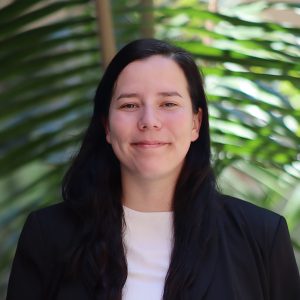
- This event has passed.
Extracting low-order representations of vortex dominated flows using deep neural networks
Speaker: Barbara Lopez-Doriga, Ph.D.
IDRE Postdoctoral Fellow
Mechanical and Aerospace Engineering
University of California Los Angeles
Place: Virtual (Register here for the zoom link)
Abstract: There is significant practical interest in understanding and modeling fluid systems, not only to gain insights into the complex dynamics that govern them, but also to enable their control for different purposes. These systems are often characterized by a vast number of degrees of freedom and typically demand large amounts of high-fidelity data and computational resources for accurate simulation. In this talk, I will briefly review several fluid dynamics problems currently being tackled with the aid of large-scale computational tools, before focusing on the specific challenge addressed by my research.
Unsteady aerodynamic effects are prevalent in the atmospheric boundary layer and can negatively impact the performance and stability of small- to medium-scale air vehicles. This research aims to identify the parameters and physical factors that can help mitigate these unsteady effects (modeled here as vortex gust encounters) on the aerodynamic loads experienced by such vehicles. To achieve this, we compile a dataset of gust interactions, varying in strength and size, with fixed airfoils of different geometries and angles of attack. We analyze the trends that emerge across these different scenarios and examine how these dynamics are captured and encoded into a low-dimensional latent space via an observable autoencoder. This framework not only enhances our understanding of gust-induced aerodynamic phenomena but also lays the groundwork for future shape optimization studies aimed at identifying airfoil designs that minimize transient aerodynamic loads.
About the speaker: Dr. Lopez-Doriga recently started her position as a postdoctoral scholar in Professor Kunihiko (Sam) Taira’s lab in the Department of Mechanical and Aerospace Engineering at UCLA. Barbara received an MS and a BS in Mechanical Engineering from the Polytechnic University of Madrid, Spain (UPM). She then received her ME and PhD in Mechanical and Aerospace Engineering from Illinois Institute of Technology (Chicago, IL). Since joining Taira’s lab, her interest has been in developing a data-driven machine-learning-based framework to find the optimal airfoil design and control systems for gust mitigation.
